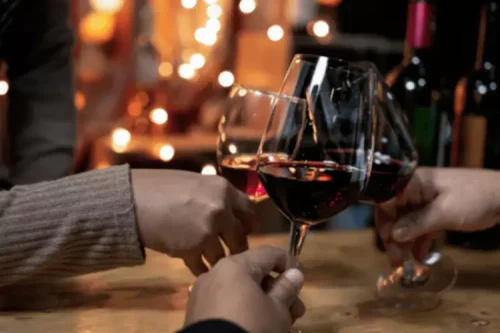Vitamins for Alcoholics: Liver Recovery and Withdrawal

Instead of reaching for sugary snacks, opt for healthy alternatives like fresh fruits, which can satisfy the sweet craving while providing essential nutrients. After stopping stimulants, it’s common to experience a strong spike in appetite — which may lead to overeating — that can overwhelm the weakened digestive system. People who abuse alcohol typically do not pay attention to nutrition. Even those who were formerly healthy tend to let their good eating habits go as they become more consumed with the need to find and drink alcohol. This creates a two-fold nutritional problem because even if someone does manage to eat healthfully and get all their nutrients, alcohol prevents them from being fully absorbed. Alcohol is notorious for dehydrating the body, and many drug users do not feel the need to drink water while using.
How Does Alcoholism Develop Over Time?
Here, chronic alcohol administration caused de-dimerization of the large Golgi matrix protein giantin in rat hepatocytes, leading to Golgi apparatus disassembly. Alcohol cessation and refeeding with the control diet for 10 days restored the compact, native structure of the Golgi apparatus. Supplementing with specific vitamins and minerals like thiamine, vitamin C, and magnesium can support your liver’s recovery and restore essential nutrients that AUD has depleted. During alcohol detox, the body may experience a decrease in fluid intake compared to usual. This, combined with the symptoms of detoxification, can lead to dehydration.

What Is the Name of Opioid Reversal Drugs?
During the first 12 to 48 hours of detoxing from alcohol, people may experience withdrawal symptoms that include diarrhea, loss of appetite and vomiting. These symptoms can affect nutrient intake, electrolyte balance and fluid preservation in the body. Ultimately, protein is more than just a macronutrient; it’s a foundational element in the journey towards rebuilding a healthy body and mind in the aftermath of alcohol dependency. A balanced diet with adequate protein is a key strategy in promoting long-term recovery and wellness. There’s no way around it—when you drink heavily for a long period, your body takes a hit. Overcoming alcohol use disorder can be a long and difficult process, and different people have different needs.

Healthy, Filling Snacks
- Supplement effects vary individually depending on the type and medication interactions.
- You may be used to eating sporadically, and changing that habit may take a little while.
- Examples of whole grains include quinoa, brown rice and non-instant oatmeal.
- Discover the disease concept of addiction, its implications on treatment, and criticisms it faces.
Most people can return to their regular diet within a day or two, but it’s always best to follow your doctor’s personalized recommendations. They know your medical history and can guide you towards the best options. Researchers found that this type of juice was beneficial for reducing muscle soreness when drunk an hour before exercise. Watermelon has a non-essential amino acid called L-citrulline that plays a role in muscle fatigue control.
If you are in recovery from alcohol, one of the best foods for alcohol detox includes anything with electrolytes. Not only are these types of foods rich in nutrients and easy for the body to digest, but they can also be hydrating. This is important because hydration helps get drug metabolites out of the body during early recovery and can ease detox symptoms like feeling sick or lightheaded. Certain foods are good for everyone when they are recovering from alcohol detox. The food should help you get back to a healthy balance, and it should start at the beginning of recovery.
- DL-phenylalanine can also be a useful supplement for alcohol withdrawal.
- So far, there’s no consensus on the medical definition of recovery in alcohol treatment literature.
- A steady intake of protein helps to stabilize blood sugar levels, which can be erratic after prolonged alcohol use.
Pickles are high in sodium, an electrolyte that excessive drinking depletes. Bananas are especially rich in potassium best food for alcohol recovery and can help replenish your body’s stores. One medium banana contains 9% of the daily value (DV) for potassium (5).
This includes replenishing the body’s vitamin stores, particularly deficiencies in vitamin B6, thiamine, and folic acid. Giving patients the opportunity to practice good eating habits is essential, especially since food addiction can often replace drug addiction. However, protein is important as it is a major nutrient and is the building block of your muscles. Proteins like meats, poultry, fish, beans, peas, eggs, nuts and seeds are rich in B vitamins, vitamin E, iron, zinc and magnesium, all of which are common alcohol-related deficiencies. Making sure to eat protein during your detox and recovery can help to replete your stores of these important nutrients. Increasing your glutamine intake during early recovery can help you suppress your cravings while also keeping your nausea, vomiting, and diarrhea under control.

We are no longer supporting IE (Internet Explorer) as we strive to provide site experiences for browsers that support new web standards and security practices. Dr. Lee says as much as you might love these colorful root vegetables, they can cause confusion post-colonoscopy. Beets can tint your stools, which might be mistaken for blood and cause unnecessary alarm.
- Many individuals who drink large quantities of alcohol are deficient in vitamin B1, or thiamine.
- Capsaicin stimulates the release of endorphins – compounds that provide feelings of happiness.
- Whole grains, sunflower seeds, legumes, yogurt, and poultry are known to contain cysteine, or you can look for a supplement (more on this below).
- FAEE can bind to and accumulate in mitochondria to impair cell function in the pancreas and the heart,35 which is also rich in FAEE synthases.
In addition to the physical barrier, there are immunological and chemical barriers on the luminal surface of the GI tract. The chemical barriers secreted by the epithelial/immune cells include secretory immunoglobulin A, mucins, and antimicrobial peptides, all of which are altered by alcohol metabolism. One 2019 study found that a significant portion of individuals with AUD admitted to the intensive care unit (ICU) had vitamin C deficiency, with 42% being severely deficient. The research suggests that vitamin C supplementation, in addition to thiamine, should be considered for these individuals.